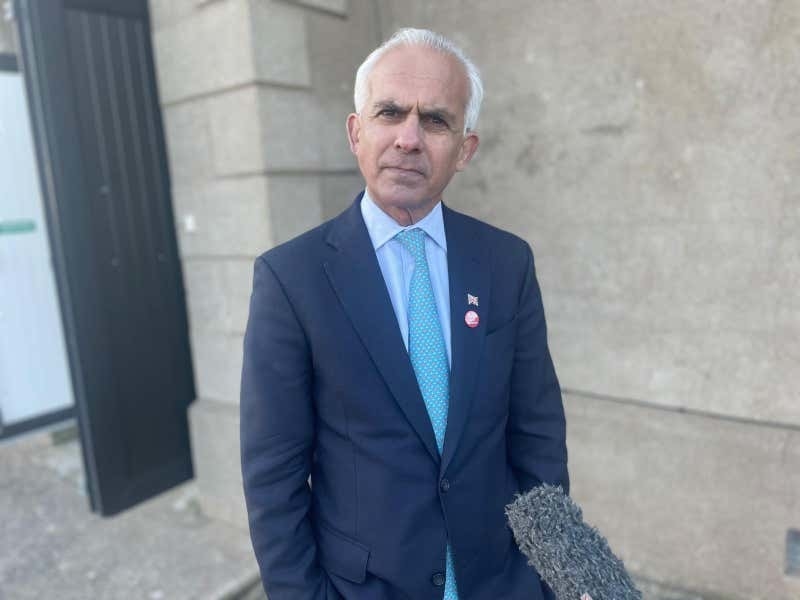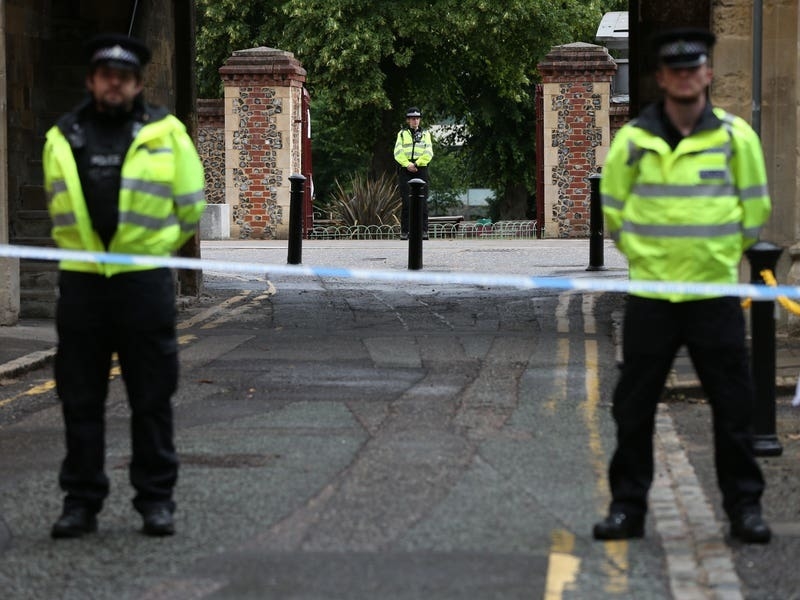When Alice Gerstel Weit bid an emotional farewell to her family’s closest friends in October 1941, she was hopeful she’d see “Little Simon” Gronowski again.
And she has – 76 years later and half a world away from where they separated in Brussels.
Ms Gerstel Weit and her Jewish family had hidden in the Gronowskis’ home for nearly two weeks before her father sent word from France of a deal to get her family out of Nazi-occupied Belgium.
The Gronowskis, also Jewish, decided to stay. They hid for 18 months until the Nazis came and put Mr Gronowski, his sister and mother on a train to Auschwitz.

“You didn’t know that I jumped off the train?” asked Mr Gronowski, now 86.
“No, no. I didn’t know anything,” his 89-year-old friend replied.
The two will return to the museum on Sunday to recount to visitors how the Holocaust ripped apart families that were fast friends.
They will explain how an 11-year-old boy made one of the most daring escapes of the war and the other family a perilous journey through occupied France.

The Nazis invaded Belgium in 1940 and began rounding up Jews. Mrs Gerstel Weit’s father, a diamond dealer with a wife and four children, decided to flee in 1941.
He turned his diamonds into cash, bought visas that got his family and brother’s family through Nazi-occupied France and to the French-controlled Moroccan city of Casablanca.
There they boarded a ship bound for Cuba.
Mr Gronowski’s father believed he and his family could hide in Brussels.
“My father was not very conscious to tension. My father was not political. He was a poet. He wrote in six languages,” he said.
“And like so many of the families he remembered in Brussels,” he continued, “he cannot believe that in Europe of the 20th century, of that civilisation, he cannot believe that Germany can fall into barbarism.”
When the Nazis arrived, Mr Gronowski’s father was in hospital. His wife told them he was dead and spared him from Auschwitz.
On a train to the death camp, she saved her son by pushing him towards the door and telling him to jump.

Mrs Gerstel Weit’s family immigrated to the United States, where she married, had two sons and eventually settled in Los Angeles and a career in real estate.
Immediately after the war, her family tried to locate her friend’s family.
Mr Gronowski eventually wrote back to her late older brother Zoltan, telling him his sister and mother had died at Auschwitz and his father had since passed away.
Zoltan never told his family “Little Simon” survived. She learned he was alive six months ago when her nephew searched online for family history.
He came across Mr Gronowski’s 2002 memoir, The Child Of The 20th Train, in which her family is mentioned prominently.
Mr Gronowski believes Mrs Gerstel Weit’s brother was too distraught to say much about his family. His own father could never come to terms with the Holocaust either, he said.
For a time, Leon Gronowski held out hope his wife and daughter somehow survived.
“But when we received information of the concentration camps, the gas chamber, the mountains of corpses, my father understood that his wife and his daughter would not come back. And he died of …,” he said, his voice trailing off.
“Of a broken heart?” Mrs Gerstel Weit asked.
“Of a broken heart,” he replied.






